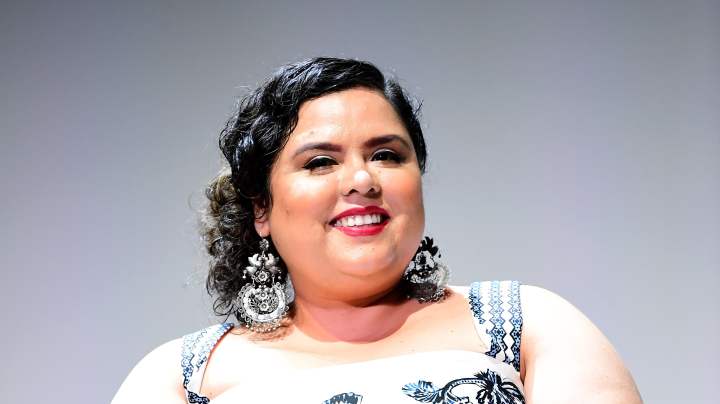‘Gentefied’ Writer Linda Yvette Chavez Gets Real About the Issues Latinxs Face Breaking Into the Industry

Writer Linda Yvette Chavez speaks onstage at 2017 Sundance NEXT FEST at The Theater at The Ace Hotel on August 12, 2017 in Los Angeles, California. Photo by Emma McIntyre/Getty Images for Sundance
While we may be seeing things positively changing for women in Hollywood, there’s still a lot of work to do until women of color get their due. On a Netflix panel, titled Put the “She” in Call Sheet, Gentefied producer Linda Yvette Chavez lays bare truths about the industry.
The first time Chavez saw someone who represented her was during a play that detailed the Chicana experience, something that as she emphasized, is different from the experiences of Mexicans and other Latin Americans.
This idea of living “between worlds” allowed her to relate to the 1997 feature Selena and its thoughts on how Mexican Americans are perceived as too U.S.-centric for Mexico and too Mexican for the US.
“That’s me!” Chavez said. “We’re always trying to chase the American dream while satisfying our parents cultural needs.”
Because the lack of shows featuring Latinos was so small, Chavez often found herself relating to shows that centered the African American experience, including The Fresh Prince of Bel-Air.
“Those shows spoke to me more because…I’m a brown woman,” she said. “I travel through the world in a very different way.”
Often these shows highlighted the code-switching that happened around white people. This, and the family dynamic, resonated with her. Though Latinidad is varied, we still mostly get stories on white Latinos. For her part, Chavez would love to move away from that narrative and instead examine Indigenous women and Afro-Latinas.
“We’re constantly facing our own -isms,” Chavez said. As a Latina producer in a field lacking Latinx representation, she often feels like she’s had to fight other members of her community when she should be supporting them.
When the panelists discussed how to break into the industry, Chavez got real, detailing how being from a low-income background with immigrant parents meant she didn’t know anyone working in entertainment. “Part of the battle is working four to five jobs,” she said, while juggling the rest of one’s life. It means it takes Latino creators years to actually break-in. For Chavez, this discussion will hopefully lead to a renaissance for diverse creators, something she’s willing to lead the charge on.
“I want to be your tía, your prima [in the industry],” she said.
It’s taken Chavez a long time to feel comfortable in her own skin and realize that “what makes you special is who you are.” While the industry needs to be more accessible for people of color, it’s just as important to teach new creators that who they are isn’t the problem.